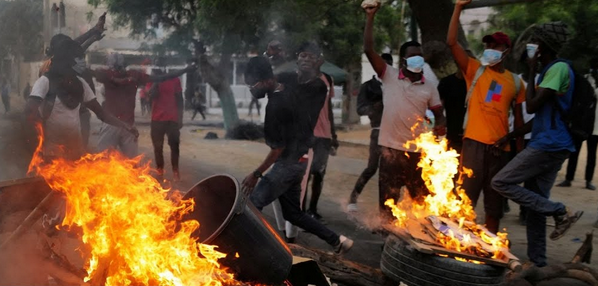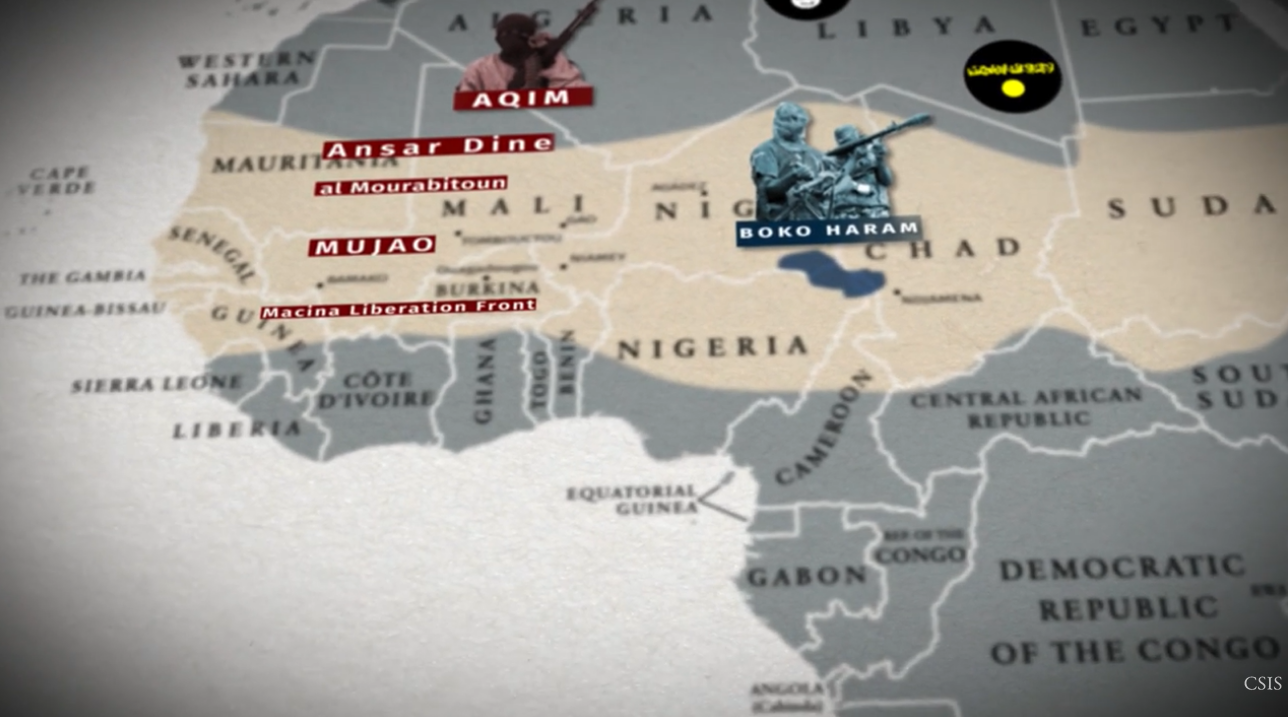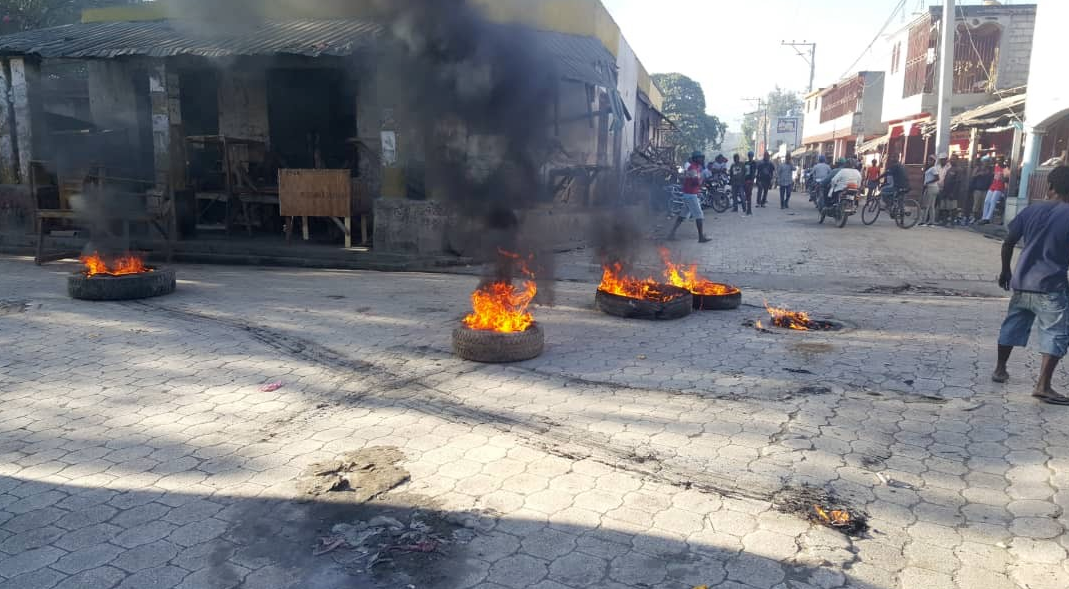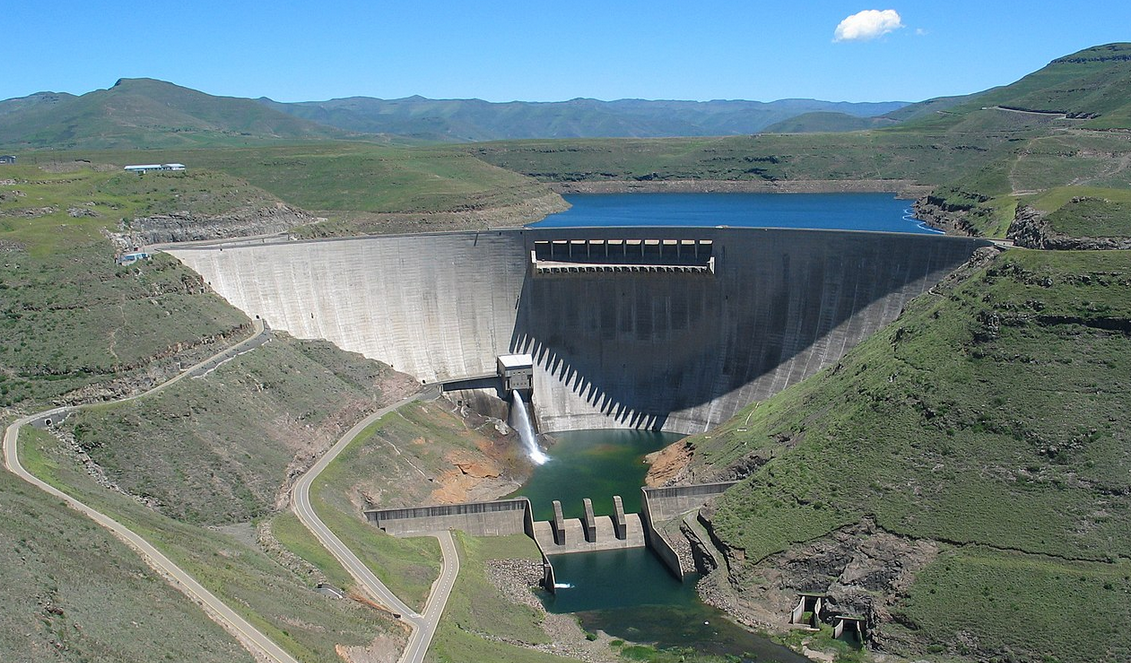Photos: Wikimedia Commons
The following statement was released by the Pan-African Unity Dialogue regarding the current crisis in Senegal.

The Pan-African Unity Dialogue (PAUD), an initiative of The Institute of the Black World 21st Century (IBW) condemns the excessive use of force to quash the popular uprising in Senegal that as of June 25, 2023, had claimed the lives of 26 civilians. This repression symbolizes the state’s violence against its own people and has risen to alarming proportions in recent weeks. Dissenting voices are intimidated, physical violence is wielded, and cherished freedoms are violated, thus undermining the hard-fought gains of democracy.

PAUD unequivocally denounces President Macky Sall (shown just above, left) and his regime’s totalitarian aspirations and calls for an immediate halt to the violent and excessive use of force against unarmed demonstrators. We demand that President Sall assure the courageous people of Senegal that he will not seek re-election in the February 2024 elections, since he would have completed his second term in office.
Furthermore, PAUD demands that all individuals aspiring to the presidency be granted the right to compete on a level playing field. “Senegal is the crown jewel of stability in a region of Africa that has witnessed intense upheavals due to political conflicts in recent months and we call upon President Sall not to destroy Senegal’s blessing of democracy.
There has been brewing tension in Senegal for several months and low-level protests have broken out because President Sall has refused to rule out the possibility that he will run for a third term. The current protests erupted on June 2, 2023 after the conviction and two-year prison sentence imposed on Ousmane Sonko, leader of the African Patriots Party of Senegal for Work, Ethics, and Brotherhood (PASTEF) on trumped-up rape charges. His supporters believe his trial was politically motivated.
The crisis comes at a time of pervasive political repression in Senegal, a product of the authoritarian drift within the existing regime and the ambitions harbored by President Sall. In 2012, the Senegalese people trusted him to steer the country’s course; the Senegalese had successfully prevented Sall’s predecessor Abdoulaye Wade from engineering a third term in office, which is barred by the Constitution. The Senegalese people were unaware that Sall’s relentless pursuit of power would sow seeds of discord and unleash the on-going violence. The president’s strong-arm tactics have plunged the nation into an unprecedented political crisis, eroding the social fabric and weakening its institutions.
Senegal has long prided itself on upholding a robust tradition of political democracy within the West African region and indeed in the continent of Africa. Since gaining independence in 1960, the country has fostered a political culture rooted in citizen participation, pluralism, and regular elections. Unlike several neighboring nations, Senegal has succeeded in orchestrating peaceful transitions of power. Additionally, the country boasts a history of vibrant civil society movements, press freedom, and a judiciary that has maintained relative independence. Senegal has proven to the world that democracy can thrive in Africa.
Nevertheless, all these hard-earned achievements now stand under threat from the encroaching authoritarianism of the current regime. Opposition activists and leaders of various movements have found themselves in the crosshairs of the government’s oppressive tactics. Blatant and unprecedented campaigns of repression have been unleashed upon them.
Peaceful demonstrations have been prohibited, arbitrary arrests have become rampant, and trials have been marred by shockingly unjust verdicts. This has unfolded in an environment where political space is violently sealed off, stifling the opposition and suppressing dissenting voices. The trial of Ousmane Sonko made it evident that the regime’s objective is not to uncover the truth but to eliminate a formidable political opponent in anticipation of the 2024 presidential elections.
The Senegalese people have been enduring a regime that imprisons or exiles its adversaries, curtails freedoms and turns a blind eye to social injustice. This situation disproportionately affects the youth, who constitute 75% of the population. They find themselves devoid of economic prospects and lacking avenues to express their political aspirations. The most vulnerable sections of society witnessed the illicit enrichment of the ruling elite, which remains impervious to the social and moral destitution surrounding them.
The Pan-African Unity Dialogue and the Institute of the Black World 21st Century are strong friends of the African people and we have issued strong statements of condemnation whenever armed conflicts, human rights abuses, and erosion of democracy occurs on the continent—including in Uganda, Congo, Nigeria, and most recently in Ethiopia. On the other hand, we also live by the motto—African solutions for African problems.
“We will support any credible African initiative that’s not partial toward the regime, that is intended to arrest the current violence and to resolve the underlying tensions that have pushed Senegal to the edge. We reiterate that President Sall acts responsibly and immediately declares that he will respect Senegal’s Constitution and not run for a third term,” said Dr. Ron Daniels, convenor of PAUD and President of the Institute of the Black World 21st Century.
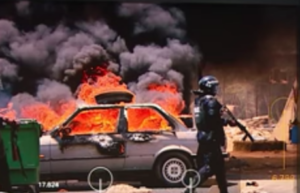
|
About the Pan African Unity Dialogue
Convened by IBW 21, PAUD holds quarterly meetings of Continental Africans, Caribbean Americans, Afro-Latinos and African Americans in the greater New York area to bridge divisions and promote operational unity and joint work around mutually agreed upon concerns or issues.
Learn more — ibw21.org/paud |
|
About the Institute of the Black World 21st Century
IBW 21 is committed to enhancing the capacity of Black communities in the U.S. and globally to achieve cultural, social, economic and political equality and an enhanced quality of life for all marginalized people. Learn more — ibw21.org |
